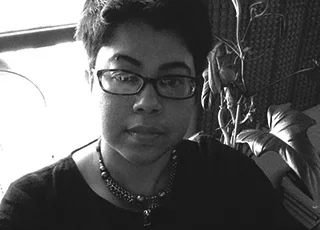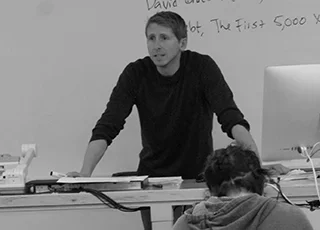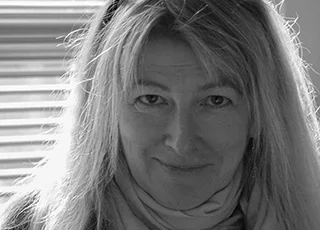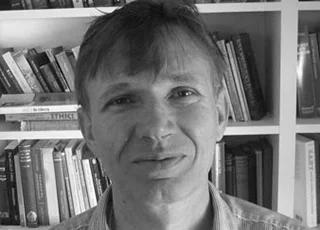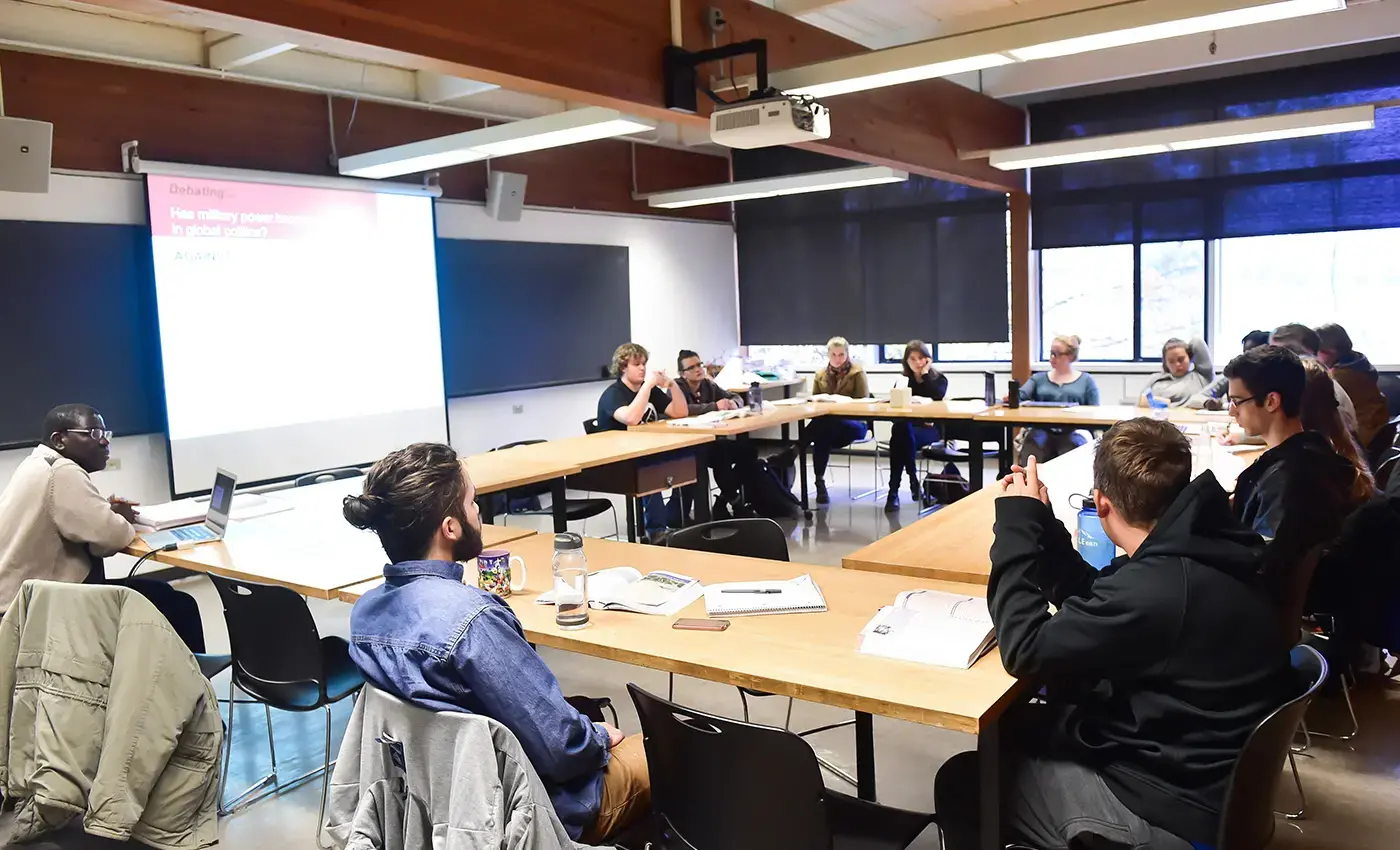Society, Culture & Thought
What it is to be human
Anthropology, economics, history, media studies, philosophy, politics, psychology, sociolinguistics, sociology—to study these fields at Bennington means diving deep into the range of human experience in order to investigate history, explore the human psyche, and analyze the workings of states, societies, institutions, and cultures.
Classes are small, discussion‐based seminars, with faculty who are practicing historians, psychologists, anthropologists, philosophers, policymakers, and diplomats. Extensive reading and writing and lively conversation are complemented by the yearly Field Work Term, with internships in the field, and, if desired, study abroad.
The list of faculty who have taught at Bennington since its founding include some of the most consequential thinkers of their eras, and people who were shaping the world that they were expert at observing: Theodore Newcomb, a pioneer in social psychology, Peter Drucker, the father of modern management, Erich Fromm, the psychoanalyst and social theorist, and Mansour Farhang, Revolutionary Iran’s first ambassador to the United Nations, to name a few.
Our faculty continue this tradition while breaking new intellectual ground, their feet firmly planted in theory and in practice. They model new ways to be engaged in the world as they guide students in their quest to formulate rigorous questions, gather evidence and analyze data, and think through and across boundaries of thought.
In recent years, our graduates have won prestigious fellowships and gained admission to premier graduate programs at Boston University Law School, Central European University, Columbia University, Cornell University, CUNY Graduate Center, Duke University, Harvard University School of Public Health, Harvard University Graduate School of Education, Graduate Institute of Geneva, London School of Economics, Massachusetts Institute of Technology (MIT), University of California Berkeley, University of Michigan, Vermont Law School, Yale University, among others.
Graduates have also used advanced work in SCT as a launchpad into jobs with climate justice, migrant rights, progressive journalism, public health, racial equity, and urban planning. Organizations that have welcomed recent SCT graduates into their ranks include Planned Parenthood, Sierra Club, Teach for America, World Resources Institute, the Urban Institute, and the United Nations. Other SCT graduates are running an organic farm, an urban brewery, an informatics start-up, a yoga studio, a botanical apothecary, and an improv theater. As engaged citizens, recent graduates are bringing healthcare to devastated regions, helping unionize teaching staff, remaking public transportation in major cities, democratizing education around the world, insisting on mental health equity in marginalized communities, and working for peace and justice on every continent.
Learn more about studying at Bennington by contacting our admissions office
At Bennington, students work closely with faculty to design the content, structure, and sequence of their study and practice—their Plan—taking advantage of resources inside and outside the classroom to pursue their work.
Faculty
Your faculty are active scholars in their fields, advancing the work by doing the work.
Field Work Term
During Field Work Term, you’ll work with experts outside the College to observe the world, test your ideas in the field, and gather insight to bring back to your classes.
- Africana Studies Institute, University of Connecticut
- Fordham University Center for Medieval Studies
- Historical Society of Pennsylvania
- Oprah Winfrey Leadership Academy for Girls
- Philosophy On Stage, University of Vienna
- Rudolf Steiner Schule, Pötzleinsdorf
- San Francisco Zen Center
- Smithsonian Center for Folklife and Cultural Heritage
- The Institute for Women, Religion & Globalization, Union Theological Seminary
- The Knox Museum
- The University Center Svalbard, Norway
- Tufts University
- U.S. Embassy in Bamako, Mali







